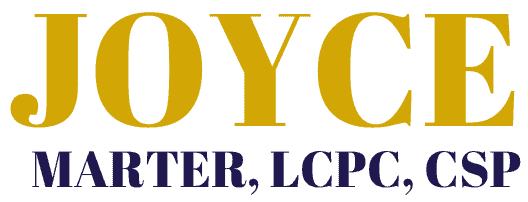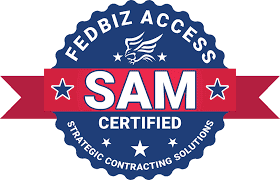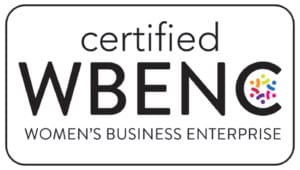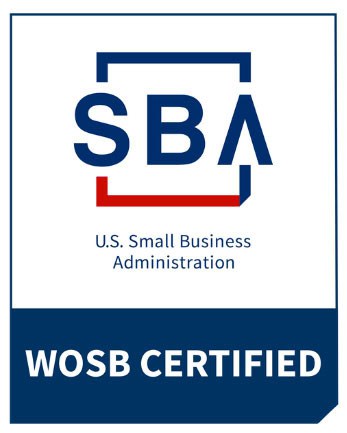Hello, everyone, and welcome. Hi, Spencer! Thank you so much for being here today. This is my first LinkedIn Live, so I’m very grateful to have you. How are you?
I’m doing well. How are you, Joyce? It’s great to be here and great to be with everybody.
Yes, and thank you so much to everyone who has registered. I know it’s going to take a couple of minutes for people to sign on, so before I formally introduce myself and Spencer, I just want to share how I became familiar with Spencer’s work. We’re both Sounds True authors. Sounds True, if you’re not familiar, is a publisher that specializes in mindfulness. When I started reading Spencer’s books and listening to his audiobooks, I thought, “Wow, I really like this guy.” Spencer, the way you think about mindfulness and money is so aligned with how I think about it. What’s fascinating is that you’re coming at it from your experience as a financial and wealth advisor, while I’ve come to similar conclusions as a psychotherapist working with my clients about the psychology of money. Yet, we’ve arrived at very similar ideas, and we’re both entrepreneurs. I believe we all specialize in our own issues, so I imagine we each have a money story that led us to this work. I’m just really honored and appreciative because you’re one of my heroes. I really appreciate your generosity in endorsing my book as a first-time author; that meant a lot. So, I hold a special place in my heart for you, and I love your work. I’m super excited that we’re doing this Sounds True event coming up soon. Thank you for that.
As people are logging on, I want to share that throughout this presentation, I really want you to post your questions and comments. Spencer and I will have some time at the end to answer your questions, and we do have the comment section up, so we’ll do our best to answer questions as they come through. We’re excited. Our hope and intention are to inspire you to practice mindfulness for your own well-being personally, professionally, and financially.
I’m going to go ahead and introduce myself and then I’ll introduce Spencer, our guest of honor. For those of you who don’t know me, I’m Joyce Marter. I’ve been a licensed psychotherapist for about 25 years. I founded, built, and successfully sold Urban Balance, a multi-million dollar national outpatient mental health company. I am a keynote speaker and corporate trainer, talking about mental health and financial health. I’m also the author of the recent book The Financial Mindset Fix. Spencer Sherman is an MBA and CFP. He is a leading financial advisor, author, and public speaker, renowned for his mindfulness-based approach to money. As the founder and former CEO of Abacus, a values-driven financial consulting firm managing over $3 billion in assets, Spencer has transformed the lives of his clients and helped them achieve financial success on their own terms.
Thank you again, Spencer, and welcome.
Thank you, Joyce. It’s great to be here with you. I certainly admire your work. Your clarity in talking about the psychology of money is so impressive. I think we’re on the same page here—while the financial aspects are important, once you have a basic understanding of the numbers, it’s really the psychology, this emotional awareness, that drives success. That’s one of the things I love about your work—you bring that forward.
Thank you so much! You’re a financial expert who knows all the strategies and best practices. I am not, but what I’ve realized is that the basics of money management really aren’t rocket science. We know we need to earn more than we spend, and we need to save and invest for the future. But just like with exercise or healthy eating, we often self-sabotage. It’s our psychology, thoughts, belief systems, emotions around money, our relationship with money, and the way we set financial boundaries—or don’t—in our relationships.
I’d like to ask you, Spencer, I mentioned earlier that I believe as healers, teachers, and advisers, we all come into our careers for a personal reason. Can you share a bit about your money story and how that led you into your career?
Yes, of course. I had a father who was very driven around business success, and I rebelled, saying I wanted nothing to do with money. But then I discovered this field of financial advising, which really combines psychology and money. I was interested in psychology, so it seemed like the perfect field to get into. However, something happened when I was just a year into the profession. I was working in Philadelphia as a financial advisor, and there was a fire in the building. As they were putting out the fire, I had a panic attack. The panic attack was because my laptop was in that building, and the thoughts in my head at that moment were that my whole life was in that building, even though I was standing safely outside. I felt like my life was in that building. It was the craziest, most irrational thought one could have, but I convinced the fire marshal to escort me into the building to retrieve my laptop, which, of course, was completely worthless, drenched in water beyond repair.
That was a wake-up call for me. I realized that the conditioning I had around money growing up was that money is more important than anything. When you have these fixed beliefs around money, like money is the most important thing, it can lead you to do impulsive things. I risked my life and future earnings just to retrieve a laptop. That experience was the catalyst for me to start doing meditation retreats. I began doing them in my early 20s, long silent meditation retreats, because I knew I came from a background that was all about numbers and business. I had zero emotional intelligence, or maybe even a negative amount, and I wanted to cultivate that. Friends of mine told me about meditation, and I just had a sense that it was the path for me. It was going to help me feel the pain I was avoiding my whole childhood.
Wow, what a powerful story! I love how that example shows how, for many of us, our identity with our work, title, finances, or bank account can eclipse our authentic self—our soul, our real being. The financial part can relate to our ego, our mind’s understanding of ourselves, while our essence is our deeper, wiser self. Mindfulness practices help us detach from the ego and connect with that higher, deeper self, our inner light. It helps us get clearer on what’s important and is so transformative personally, professionally, and financially.
I wish you were there with me, Joyce. You would have counseled me well! What you just said is so beautiful. My story was dramatic, but what I’ve seen in myself since then, and with thousands of clients and students, is that these fixed beliefs we grip onto can lead us to do things like overspend or invest in overly speculative, risky things where we lose all our money. We do things because we are identified with ego, with the idea that something is more important than our day-to-day well-being.
Absolutely. You talked a bit about how you came into mindfulness meditation and how it was helpful to you. How has it specifically transformed your relationship with money?
Mindfulness has helped me in many ways. For example, I sometimes say that it’s not polite to interrupt someone else, but it’s fine to interrupt yourself—your own ruminations, worries, or fantasies. That often happens to me; even now, after many meditation retreats, the mind’s chatter hasn’t changed much. But what has changed is that the chatter no longer controls me. It’s more in the background, and I see it. Mindfulness has helped me see the chatter, see the fantasy thought, and recognize it for what it is. When someone says they have an investment that will tenfold my money in a year, I can feel that grip, that fear of missing out, but I can also be with it and then access the wisdom within. That wisdom is within each of us, but it gets clouded by emotions. So, mindfulness has given me an anchor in my life, so I’m not so swayed by the inevitable ups and downs and changes.
To silence our inner saboteur and overcome financial challenges, it’s crucial to connect with our breath and senses. Often, a scarcity mindset and feelings of inadequacy can fuel anxiety and stress. By becoming aware of the sensations in our bodies and embracing self-compassion, we can manage these negative emotions. Even when we’ve made financial mistakes—as I have, leading to significant stress—it’s through clinical training and mindfulness techniques that recovery becomes possible.
Many of us are not taught to discuss money openly, often viewing it as a private or impolite topic. However, this isolation leads us to compare our internal struggles with others’ outward appearances, creating unnecessary stress. In my 25 years as a therapist, I’ve seen that most people struggle with self-esteem and financial issues, regardless of where they fall on the economic spectrum.
Mindfulness strategies have been essential for me, particularly in getting out of my head and into my body, checking in with my heart and gut. For example, when selling my business, I relied on mindfulness to discern which of the 50 prospective buyers and eight offers were trustworthy. This helped me make a good decision, eventually selling my business for more than I ever imagined. Mindfulness also allowed me to compartmentalize worries, repeat mantras to calm my fears, and seek support from advisors, which was crucial in turning my situation around.
Engaging with our finances mindfully, even just for a few minutes a day, can lead to significant changes. We can move from financial avoidance or denial to fiscal consciousness, from blame to responsibility, and from shame to acceptance. Mindfulness helps us embrace self-compassion and forgiveness, recognizing that we are all works in progress.
Our relationship with ourselves sets the tone for our financial wellness. As clients progress in therapy, they often become more confident and assertive, expanding their comfort zones. This growth leads to better financial outcomes, as self-worth and net worth are closely linked. By working on ourselves through mindfulness, we not only improve personally but also see financial benefits.
In Western culture, there’s a tendency to equate net worth with self-worth, but it’s essential to remember that our value is far greater than any financial measure. Health, humor, creativity, and intelligence are worth far more than money. Money is temporary, and our true essence lies in who we are, not in what we have.
Mindfulness also teaches us detachment, allowing us to separate our sense of self from our financial status. This emotional separation is crucial for managing financial stress, such as when I thought I would have to file for bankruptcy. By compartmentalizing my worries, I was able to move forward.
Money is often a taboo subject, leading to avoidance. However, having courageous money conversations—whether with a spouse about spending or with a boss about a raise—can empower us and improve our financial and personal relationships. Money is one of the top reasons couples argue and divorce, making it essential to discuss it openly and advocate for ourselves in the workplace. By embracing creativity and expanding our lives, we can achieve more and help others along the way.
The conversation isn’t about materialism, excess, or greed. When we are financially well, we can take better care of ourselves, our loved ones, and our communities. We can also become philanthropists and give to charities. As my business recovered, I was able to employ more people and offer pro bono services. If guilt is holding you back, it’s important to set it aside and consider how self-limiting beliefs or a scarcity mindset might be restricting you. Programs like Spencer’s and mine, along with the Sounds True Money course starting tomorrow (which you can watch later if you don’t join right away), can really help you.
Now, we’re moving into the Q&A portion. Please feel free to put your questions in the comments for Spencer to answer. Spencer, which of your books and programs are you most proud of, and why?
Spencer: Well, my book “The Cure for Money Madness” was written about 10 years ago, and I’m currently working on a new book. This new book will incorporate everything I’ve learned over the past decade. I’m very excited about it, as it will likely bring more of the benefits from the deeper meditation practice I’ve engaged in over these years. My belief is that I can share what I’ve learned so that others don’t need to spend weeks or months meditating as I have. They can benefit from the skills I’ll offer in this new book.
I also have a program called “Fearless Finance,” a weekly program available on my website. Additionally, I’m involved in the “Inner Dimensions of Money” course with Joyce at Sounds True. I also teach a “Mindful Advisor Retreat” for professionals like accountants, lawyers, therapists, and financial advisors. This is a 24-hour, no-device retreat in Northern California, focusing on cultivating mind states that lead to greater financial and business success.
Joyce: That’s amazing, Spencer. Congratulations on all the work you’re doing. You’re helping not just your financial advising clients but also your readers, listeners, and retreat attendees. Thank you for all the good you’re doing in the world. I’m also grateful that you endorsed my book, “The Financial Mindset Fitness Program for an Abundant Life.”
Spencer: Your book is amazing.
Joyce: Thank you. I appreciate it. I feel like it’s my baby, and I’m sure you feel the same way about your work. I truly believe it’s my life’s mission to remove the shame and stigma around mental health and financial health struggles. I want to empower people to align their gifts with the world’s needs and support them through healing, recovery, and learning to thrive, prosper, and move into the flow of abundance. I get very excited about helping others. My program is a book with exercises that couples can complete together. I’m hoping my next book will focus on couples and money and how to have the conversations I’ve seen happen with so many couples I’ve counseled.
Now, let’s move into the Q&A. Spencer, if you see any questions in the chat that you feel you can answer, please go ahead.
Spencer: Sure. Lydia mentioned that she starts her day with meditation. I believe meditation anchors us in Stillness, allowing us to enter the frenetic business and money world more calmly. It’s a Counterpoint to all that chaos. Jason asked how to get a partner on board with using mindfulness in their financial life. Whether it’s a romantic or business partner, it’s mostly about modeling the mindfulness that has informed your life. Instead of using terms like mindfulness or meditation, which might be turn-offs for some, you can suggest taking a pause or waiting a few days before making a purchase. This is a way to slow things down and get your partner on board.
Mindfulness is also about facing the truth of things, rather than just our perceptions or judgments. It involves being aware of your actual financial situation, not just the story you tell yourself about it. This awareness can help you see the broader view and relax your nervous system, preventing you from focusing on the day-to-day fluctuations that can cause stress.
Joyce: Absolutely, Spencer. I love that you suggested practicing gratitude. My spouse and I went through a rough patch with our adult children, and he suggested we go for a walk and practice gratitude. Simple things, like acknowledging that our kids are alive, can reroute our brains from fear and negativity.
Spencer: Exactly. Gratitude helps us access the common sense we all have in abundance. In business, gratitude can help you not focus solely on the fact that your profit margin went down this year or that your personal finances took a hit.
Joyce: You’re right. Companies like Nike, Google, and Johnson & Johnson have major mindfulness programs. Even small businesses are incorporating mindfulness practices, such as Zen rooms and yoga sessions. Corporate subscriptions to meditation apps like Headspace and Calm are becoming more common.
Spencer: So, are you saying I don’t have to feel shy or ashamed that meditation is such a big part of my life?
Joyce: It’s cool now, Spencer!
Spencer: Great! I’m finally cool.
Joyce: Absolutely. If there are any more questions, please post them in the comments. As we wrap up, Spencer and I will share some resources. I’ll provide information about my speaking engagements, coaching, digital course, and book, as well as details about the Sounds True Inner Dimensions of Money course that Spencer and I have been discussing. Spencer, I’m sure you’ll share about all the retreats and programs you offer as well.
Spencer: Yes, definitely. I have a retreat coming up on November 1st and 2nd in Northern California. We’ll put the details in the chat later. I also want to mention that my company, Abacus, is taking on new financial advising clients. We have much lower minimums than most advisory firms and are committed to doing a lot of pro bono work each year. So, if you need a financial checkup or a sounding board, you can reach out to us.
Joyce: That’s awesome. Is there anything else you’d like to share before we wrap up?
Spencer: Yes, I want to emphasize the power of compassion. It saved my life. A daily compassion practice has been instrumental in softening fixed beliefs that were ingrained in my mind growing up, like the belief that money is the most important thing. While I still hold that belief to some extent, compassion has softened it to the point where I now have the ability to choose how I live my life. I’m not as reactive to that belief as I used to be. So, if you have a limiting belief like “I’m not good with money” or “I can’t earn more than a certain amount,” compassion can help you move past it.
Joyce: That’s a beautiful message to end on, Spencer. Thank you for sharing.
